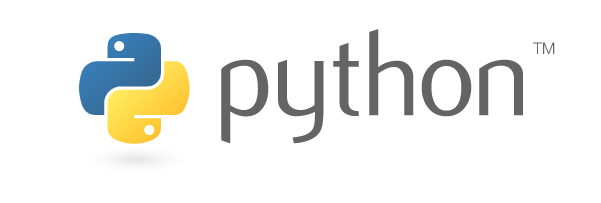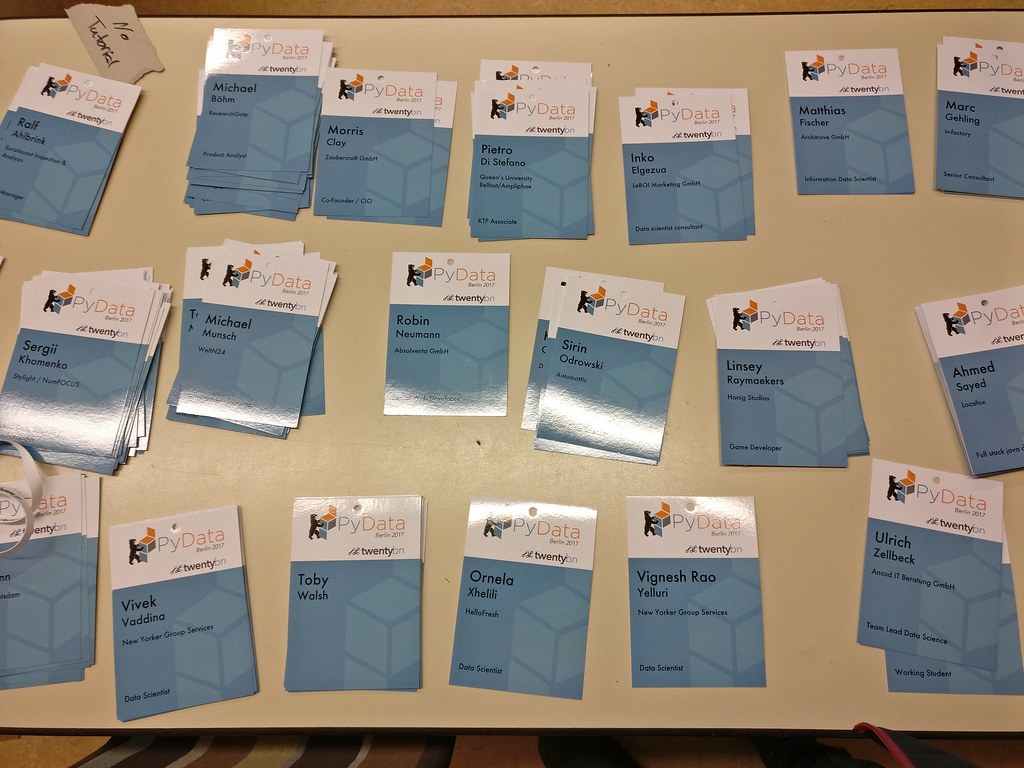PyData Berlin 2017
June 30th to July 2nd
Diversity Program
PyData is community of users and developers of python data tools. We firmly believe that the community becomes better with each new member. We welcome new member from diverse backgrounds and seek to actively aid people, especially people new to community, to enjoy their time at PyData.
In light of that PyData runs a diversity program to encourage new speakers by offering mentorship on talk and conference prepartion. The diversity program also includes limited number of scholarships for people who might not otherwise be aable to attend the conference. In 2017 we were able offer free or reduced priced tickets as well as travel reimbursements to 20 scholarships awardees. Focusing our efforts on the local community within the EU, allowed us to maximise the number of people we could support. The scholarship was 100% supported by sponsors and this year we received a generous donation from the Python Software Foundation, who have been a consistent supporter of PyData conferences around the world.

You can read about Szilvia Téglás’ and Katinka Jeszenszki’s reflections on their first PyData here.
Impressions from the Conference
Talks

Ethics in Machine Learning Panel

Ethics in Machine Learning Panel Q&A

The Future of Cybersecurity Needs You, Here is Why.

Keynote Q&A

Are many of your worries about AI wrong?

Keynote Q&A

Natural Language Processing: Challenges and Next Frontiers

Keynote Q&A

Data Science & Data Visualization in Python

Best Practices for Debugging

Engage the Hyper-Python

Where are we looking? Predicting human gaze using deep networks.

Text similiarity with the next generation of word embeddings in Gensim

Analysing user comments with Doc2Vec and Machine Learning classification

Compositional distributional semantics for modelling natural language

Conversational AI: Building clever chatbots

Semi-Supervised Bootstrapping of Relationship Extractors

Is That a Duplicate Quora Question?

Developments in Test-Driven Data Analysis

Evaluating Topic Models

A word is worth a thousand pictures: Convolutional methods for text

Gold standard data: lessons from the trenches

The path between developing and serving machine learning models.

Advanced Metaphors in Coding with Python

Leveling up your Jupyter notebook skills

Introduction to Julia for Scientific Computing and Data Science

Pandas from the Inside / "Big Pandas"

Introduction to Data-Analysis with Pandas

Topic Modelling (and more) with NLP framework Gensim

Social Networks and Protest Participation: Evidence from 130 Million Twitter Users

Data Science for Digital Humanities: Extracting meaning from Images and Text

AI assisted creativity

Spying on my Network for a Day: Data Analysis for Networks

Biases are bugs: algorithm fairness and machine learning ethics

Fairness and transparency in machine learning: Tools and techniques

Deep Learning for detection on a phone

Towards Pythonic Innovation in Recommender Systems

“Which car fits my life?” - mobile.de’s approach to recommendations

On Bandits, Bayes, and swipes: gamification of search

Machine Learning to moderate ads

Large Scale Vandalism Detection in Knowledge Bases

Open Data Use Cases

Clean Code in Jupyter notebooks, using Python

Fast Multidimensional Signal Processing using Julia with Shearlab.jl

Polynomial Chaos: A technique for modeling uncertainty

TNaaS - Tech Names as a Service

Finding Lane Lines for Self Driving Cars

Kraft - Building smart IoT applications with Python and Spark

Introduction to Search

Patterns for Collaboration between Data Scientists And Software Engineers

Kickstarting projects with Cookiecutter

Patsy: The Lingua Franca to and from R

fai Chow - Introduction to Machine Learning with H2O and Python

Introductory tutorial on data exploration and statistical models

Lightning Talks

Blockchains for Artificial Intelligence
